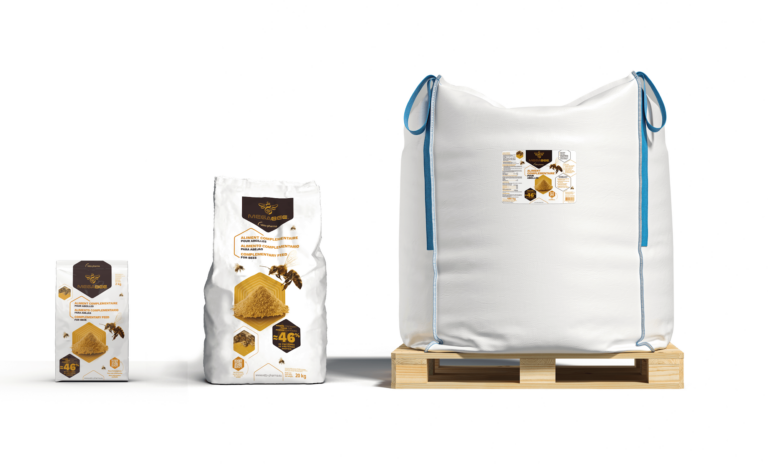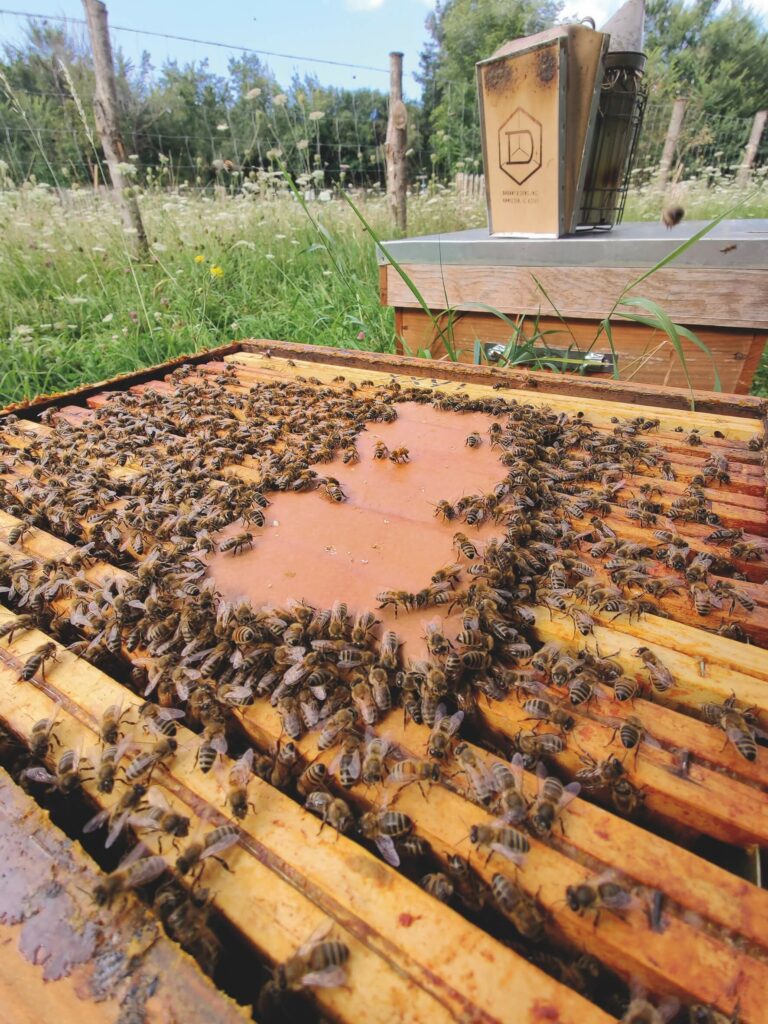 by Véto-pharma
by Véto-pharma The Véto-pharma team is pleased to announce the launch of MegaBee in Europe! MegaBee is a high-quality pollen substitute, widely recognised in the United States and New Zealand for its quality and its ability to stimulate hive development like no other product. The adaptation of the American formula to European standards, without GMOs, is excellent news for beekeepers who need to alleviate the nutritional deficiencies of their colonies and promote their recovery or development.
Dubbed “the elixir of youth”, MegaBee will be an ally of choice for your bees.
In the current context, where our bees are exposed to numerous stress factors: adverse climatic conditions, large extensions of monocultures, increasingly urban environments, massive use of pesticides, new invasive species, increased prevalence of viruses, varroa, nosema… Every little bit helps!
When we take care to safeguard the nutritional status of our hives, we will indirectly increase their ability to resist many of these adverse factors. In fact, malnutrition worsens the symptoms associated with diseases caused by viruses and fungi, while pathogens such as varroa and nosema aggravate malnutrition problems by feeding on the bees’ body reserves and hindering intestinal absorption of nutrients, respectively.1

Nutritional stress factors include unmet caloric needs, inadequate reserves of macronutrients such as protein, impaired digestive physiology and alterations in the microbiota. To interfere with this feedback, it is suggested to increase the quality and quantity of natural resources and to use nutritional supplements in order to reduce susceptibility to pathogens and to compensate for their negative effect on nutritional physiology.
Let us not forget that colony health is not only defined by the absence of disease, but also implies that the colony is composed of well-nourished individuals, able to reproduce and to withstand stressful situations such as disease, exposure to toxins (e.g. insecticides) and periods of scarcity.2 Nutrition therefore plays a key role in maintaining healthy hives.
Within the hive, we can distinguish three closely related nutritional levels: colony nutrition, adult nutrition and larval nutrition.
This complex interconnectedness occurs through the numerous interactions and trophallactic exchanges between individuals in the colony and is evident when we see that nutritional deficiencies at one level directly affect the rest. For example, in a colony without pollen reserves, the brood nurses will not be able to adequately feed the larvae, which will lead to poor quality and/or quantity of adults in the next generation. This will affect the productive capacity of the colony and thus the amount of collective reserves. 2

Figure 2 : Schematic representation of the three levels of nutrition within the hive, dependencies and possible effects of protein malnutrition.
A: dependence of adults on food stored in the colony.
B: related to the quality of the larvae.
C: regulation of the number of larvae.
D: cannibalism.
E: impact of larval nutrition on the next adult generation.
F: impact of adults on colony nutrition.
MegaBee is the nutritional supplement that provides the proteins, vitamins, lipids and minerals that bees need to maintain their productive and reproductive activity in periods of scarcity (related to periods of drought, lack of flowering, areas of high hive density, low quality pollen, etc.) or high energy demand (making nucs, starting the hive at the beginning of spring, recovery after treatment or illness, etc.).
The composition of MegaBee, developed over 7 years, is based on plant-based ingredients individually tested for acceptance and consumption by bees, but knowing that they like it and seeing them eat it is not enough!
Therefore, during the manufacturing process, optimal grinding is ensured, reaching a particle size smaller than a pollen grain, which will facilitate the absorption of all nutrients and avoid waste. In addition, its balanced formulation provides the 10 essential amino acids needed by the bees. Among these, leucine, isoleucine and valine, are present in higher proportion to meet the bees’ greater requirements. As you may know, if any of these amino acids is not available in sufficient amount in their diet, the development of the colony will be limited.2
All ingredients contained in MegaBee are GMO-free and manufactured in the European Union, just like MegaBee itself. As a protein source, it excludes soybean meal, as this cereal may contain the sugars stachyose and raffinose, which can be toxic to bees. Additionally, it avoids anti-nutritional factors (mainly the trypsin inhibitory factor) that can impair bees’ ability to digest proteins.3
Instead, we incorporate a variety of plant-based proteins (such as maize, wheat and brewer’s yeast) to provide an optimal combination of their different amino acids and micronutrients.
But how are all these properties reflected in the colonies that are fed with MegaBee?
We tell you about it in the next post… Click here to find out more.


Barker R.J. (1977) Some carbohydrates found in pollen and pollen substitutes are toxic to honey bees, J. Nutr. 107, 1859–1862.
MGB-05-EN-N01-07/24
 by Véto-pharma
by Véto-pharma  by Véto-pharma
by Véto-pharma Join the Véto-pharma community and receive our quarterly newsletter as well as our occasional beekeeping news. You can unsubscribe at any time if our content does not suit you, and your data will never be transferred to a third party!
© 2019-2025, Véto-pharma. All rights reserved